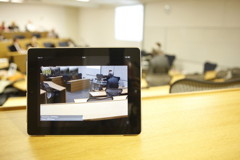Introducing the LTI grants and ideas for applications
LTI Grants 2015/2016 – opportunities for funding
 Now that we have reached the end of term we hope that you have some time to catch your breath and reflect on your teaching in order to think about any changes that you might like to make for the next academic year.
Now that we have reached the end of term we hope that you have some time to catch your breath and reflect on your teaching in order to think about any changes that you might like to make for the next academic year.
In order to help with this process LTI are currently accepting applications for Learning Technology and Innovation Grants. Funding will be awarded to projects which make effective and innovative use of technology in teaching, learning and assessment.
The deadline for applications is Friday 29 May 2015 and more information about the various application strands can be found on the grants’ page.
Practical advice on using technology in your teaching
LTI are running a number of workshops that give practical advice on using technology in your teaching. The workshops below will involve working with other academic staff; sharing your teaching practice and selecting and developing new teaching approaches. They will also give you an opportunity to try out some of the technology and ask any questions that you may have.
Flipping lectures
Thursday 26 March 10:00-11:30am 32LG.15
‘Flipping’ is taking content delivery out of the classroom and putting it online so that the students get the content before they meet up and the face to face time can be used to allow them to do something with that content. Participants on this workshop will explore:
- Alternative ways of delivering course content
- Interactive use of face to face time
- Preparing students to get the most out of this new way of learning
Encouraging active learning
Thursday 26 March 11:30-13:00 32LG.17
This practical workshop is an opportunity to explore and evaluate a range of learning technologies and their possible role in fostering active learning in your teaching. These technologies will include: computer based simulations and games, audience response systems and more advanced use of Moodle for active learning including quizzes, use of groups, wikis, glossary tool and discussion boards.
Writing collaboratively with wiki’s and Google docs
Wednesday 13 May 12:30-13:30 R08
Collaborative writing can:
- improve efficiency of group work & quality of interactions between students in group
- help with self reflection and critical thinking
This workshop will give participants an awareness of the issues that must be considered when using collaborative writing tools. It will also equip participants with the skills required to enable them to think about how they might incorporate collaborative writing tools into their teaching.
Book a place via the LSE training system
Assessment with technology
(date to be confirmed)
What is online assessment? What are its benefits? How can I move my assessments online? This workshop introduces online assessment, considering
- methods of assessing and grading online
- improving feedback and
- helping students to avoid plagiarism.
This will be a discursive session and will not cover training in how to set up eAssessment. We will introduce the systems available at the LSE and discuss the best way of bringing them together.
Places for all the LTI workshops can be booked via the online training and development system and any queries should be sent to LTI-support@lse.ac.uk.
We will be publishing more ideas and case studies which contain examples of how technology can be incorporated into teaching, learning and assessment so watch this space for ideas of ways you could use an LTI grant.












